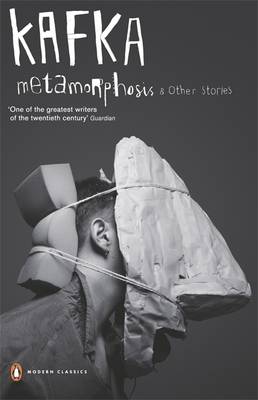I gather that ‘The Stoker’ was the first chapter in Kafka’s unfinished novel Amerika. I’m sure I’ll read that in the fullness of time, and I’ll be intrigued to see where it goes. For now, though, the experience of reading ‘The Stoker’ feels complete in itself.
As with ‘The Judgement’, we begin in what seems fairly straightforward territory. After fatheringa child with a maid, seventeen-year-old Karl Rossmann has been sent across the Atlantic by his parents. He is about to disembark at New York when he realises he has left his umbrella somewhere in the ship. So he goes below decks to find it, becomes lost, and gets into a conversation with the ship’s stoker. Michael Hofmann suggests in his introduction that Kafka can often be funny, and I certainly found that with the rambling dialogue between Karl and the stoker – not so much from particular lines as a cumulative sense of absurdity.
Karl eventually learns that the stoker is about to be fired, because his Romanian boss doesn’t care for Germans like him. Karl decides to go with the stoker to see the ship’s captain, and explain his concerns; and so Karl loses a little control over his own story, as it were – he’s making the decisions, but in the context of what’s happened to someone else.
In the captain’s chamber, the stoker is increasingly sidelined: at first, he is not allowed in the room, placing the onus on Karl to be his advocate. When the stoker is allowed back in, his boss is waiting outside, witnesses in tow, making the whole thing seem a charade. Then one of the captain’s confidants announces that he is Karl’s uncle, much to Karl’s surprise; the stoker is lost amidst all this, and Karl can no longer pretend what is happening. My sense of reading ‘The Stoker’ – quite like ‘The Judgement’, actually – is of a ‘story’ being told from a distance, such that the reader (and Kafka’s protagonist) can see only the echoes. And despite (or perhaps because of) everything, it feels strangely like a parade.
Book details (Foyles affiliate link)
‘The Stoker’ (1913) by Franz Kafka, in Metamorphosis and Other Stories (2007), tr. Michael Hofmann, Penguin Modern Classics paperback

Recent Comments